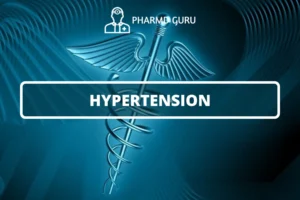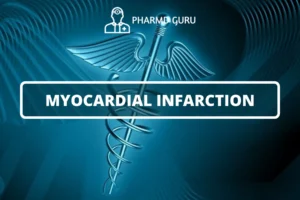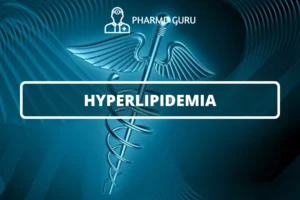Congestive Cardiac Failure (CCF), also known as heart failure, is a chronic medical condition characterized by the heart’s inability to pump blood effectively. This results in fluid accumulation in various parts of the body, leading to symptoms such as shortness of breath, fatigue, and fluid retention. In this article, we will explore the etiopathogenesis of CCF and discuss the pharmacotherapy options available for its management.
SCROLL DOWN TO THE BOTTOM OF THIS PAGE FOR ACTUAL NOTES.
Table of Contents
- Introduction: Understanding Congestive Cardiac Failure
- Etiology and Risk Factors
- Pathophysiology of Congestive Cardiac Failure
- Clinical Presentation and Diagnostic Evaluation
- Non-pharmacological Interventions
- Pharmacotherapy for Congestive Cardiac Failure
- First-Line Medications
- Second-Line Medications
- Combination Therapy
- Personalized Treatment Approach
- Treatment Guidelines and Recommendations
- Adherence and Lifestyle Modifications
- Monitoring and Follow-Up
- Potential Complications
1. Introduction: Understanding Congestive Cardiac Failure
Congestive Cardiac Failure occurs when the heart is unable to pump blood efficiently, resulting in inadequate perfusion of organs and tissues. It can be caused by various underlying conditions that affect the heart’s structure or function. Understanding the mechanisms and treatment options is crucial for managing CCF effectively.
2. Etiology and Risk Factors
The etiology of CCF is diverse, and multiple factors can contribute to its development. Some common risk factors and causes of CCF include:
- Coronary artery disease
- Hypertension
- Myocardial infarction (heart attack)
- Valvular heart disease
- Cardiomyopathy
- Congenital heart defects
- Diabetes
- Obesity
- Chronic kidney disease
Identifying the underlying cause is essential for determining the most appropriate treatment approach.
3. Pathophysiology of Congestive Cardiac Failure
The pathophysiology of CCF involves impaired cardiac function and compensatory mechanisms that aim to maintain adequate blood flow. Initially, the heart compensates for its reduced pumping capacity through mechanisms such as neurohormonal activation and ventricular remodeling. However, these compensatory mechanisms eventually become maladaptive and contribute to further cardiac dysfunction and worsening of symptoms.
4. Clinical Presentation and Diagnostic Evaluation
CCF presents with a range of symptoms, including:
- Shortness of breath
- Fatigue and weakness
- Edema (swelling) in the legs, ankles, or abdomen
- Rapid or irregular heartbeat
- Persistent cough or wheezing
To diagnose CCF, healthcare providers may perform various tests, such as:
- Physical examination
- Chest X-ray
- Echocardiogram
- Electrocardiogram (ECG)
- Blood tests (to assess cardiac biomarkers, electrolytes, and kidney function)
Accurate diagnosis and assessment of the severity of CCF guide treatment decisions.
5. Non-pharmacological Interventions
In addition to pharmacotherapy, non-pharmacological interventions play a vital role in managing CCF. These may include:
- Dietary modifications: Reducing sodium intake and limiting fluid intake to prevent fluid retention.
- Regular exercise: Engaging in supervised exercise programs to improve cardiovascular fitness.
- Smoking cessation: Quitting smoking to reduce the risk of further damage to the heart and blood vessels.
- Weight management: Achieving and maintaining a healthy weight through a balanced diet and regular physical activity.
- Stress reduction: Utilizing stress management techniques, such as meditation or relaxation exercises.
These interventions can help alleviate symptoms and improve overall cardiac function.
6. Pharmacotherapy for Congestive Cardiac Failure
Pharmacotherapy is a cornerstone of CCF management and aims to improve symptoms, slow disease progression, and reduce hospitalizations. Several classes of medications are used in the treatment of CCF.
7. First-Line Medications
First-line medications commonly prescribed for CCF include:
- Angiotensin-Converting Enzyme (ACE) inhibitors
- Angiotensin II Receptor Blockers (ARBs)
- Beta-Blockers
- Diuretics (such as loop diuretics or thiazide diuretics)
These medications help reduce fluid accumulation, lower blood pressure, and improve cardiac function.
8. Second-Line Medications
If symptoms persist or worsen despite first-line therapy, second-line medications may be considered. Some examples include:
- Aldosterone Antagonists
- Hydralazine with nitrate combination
- Digoxin
These medications have specific indications and are usually prescribed in conjunction with first-line agents.
9. Combination Therapy
Combination therapy involving multiple medications may be necessary for patients with severe CCF or those who do not achieve symptom relief with monotherapy. Combining medications with complementary mechanisms of action can enhance their effectiveness in improving cardiac function and reducing symptoms.
10. Personalized Treatment Approach
Treatment for CCF should be tailored to each patient’s individual characteristics, including the underlying cause, comorbidities, and medication tolerability. A personalized treatment approach ensures optimal management and reduces the risk of adverse events.
11. Treatment Guidelines and Recommendations
Several professional societies and organizations have established guidelines and recommendations for the management of CCF. These guidelines provide evidence-based recommendations on diagnostic criteria, treatment goals, and medication selection.
12. Adherence and Lifestyle Modifications
Adherence to medication regimens and lifestyle modifications is crucial in managing CCF effectively. Healthcare providers play a vital role in educating patients about the importance of adherence and providing support to ensure treatment success.
13. Monitoring and Follow-Up
Regular monitoring of symptoms, blood pressure, and cardiac function is necessary to assess treatment efficacy and make adjustments as needed. Frequent follow-up visits with healthcare providers allow for ongoing evaluation and optimization of CCF management.
14. Potential Complications
Untreated or poorly managed CCF can lead to various complications, including:
- Pulmonary edema (fluid accumulation in the lungs)
- Arrhythmias (abnormal heart rhythms)
- Kidney dysfunction
- Cardiogenic shock (severe cardiac dysfunction)
Proactive management and adherence to treatment can help minimize the risk of these complications.
ACTUAL NOTES:




